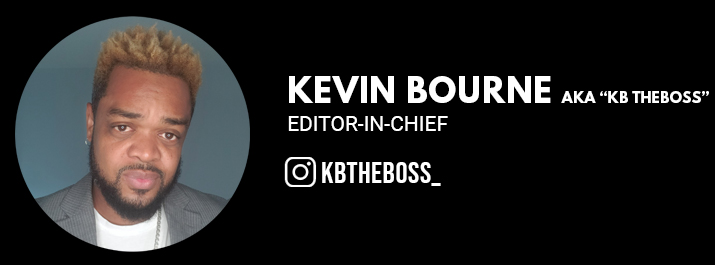SHIFTER recently attended the premiere for the latest film from Nigerian director Ishaya Bako about a recent graduate who must do what he can to make ends meet for himself and his family, but at what cost? Here’s SHIFTER’s Kevin Bourne with his I Do Not Come To You By Chance film review.
My introduction to Nigerian movies came about 15 years ago in my friends’ Toronto apartment. What we saw was a film that felt a bit too long, with outrageous and sometimes comical or supernatural storylines, as well as scenes that took the film into odd directions.
Well, that was then. Today, Nollywood, the Nigerian film industry, is big business, sometimes with cinematography and writing on par with Hollywood. As a testament to the growing global reach of Nollywood, this year’s edition of the Toronto International Film Festival featured a few Nigerian films.
One of those films representing Nigeria’s growing cinematic ambitions is I Do Not Come To You By Chance based on a book of the same name by Adaobi Tricia Nwaubani. While appearing in Toronto, Director Ishaya Bako revealed that he first read the book 10 years ago vowing to one day turn it into a film after foreseeing that Nigeria’s resurgence in music and literature would eventually spread to film.
I Do Not Come To You By Chance follows Kingsley (Paul Nnadiekwe), a recent graduate who is having trouble finding work. With mounting financial pressures at home, including his siblings’ school fees and a family tragedy, he is forced to reach out to his scheming uncle Boniface, aka “Cash Daddy” (Africa Magic Viewers Choice Awards winner Blossom Chukwujekwu), about some financial help. His uncle,in turn, offers him a job that could change his life (and change him). It’s a rags to riches story as Kingsley experiences a life he could only dream of, but at what cost?
For those of us who grew up in North America and are used to seeing our Black experience depicted on the big screen, films like I Do Not Come To You By Chance are refreshing in showing us unique stories about the Black experience elsewhere (especially on the continent we came from). Even if you’re from the Caribbean or North America, there’s a familiarity to it; like home. The film was shot in Abuja, showing the contrast of poverty and palatial homes and picturesque landscapes that many in North America wouldn’t associate with Africa.

The film is a window into the inner workings of the Nigerian fraud scheme industry. While we’ve all heard about the Nigerian prince money fraud schemes, wondering how people could actually fall for that stuff, I Do Not Come To You By Chance shows that this industry is much more evolved than we think. Author Adaobi Tricia Nwaubani wanted to depict these schemers as clever, not only outsmarting middle-aged women looking for love, but corporate executives looking to do business in Nigeria. The film shows how hard it is for some Nigerians to keep up with the cost of living, including education and hospital bills, and the lengths to which people will go to get ahead. The story could’ve actually made a great TV series where we could get to know even more about Kingsley and Boniface. With the growing international recognition of Nigerian cinema, the world could very well be ready for a breakout Nigerian TV series similar to what Top Boy has done for the UK.
The film includes standout performances from Nnadiekwe, who can tell a story with his facial expressions alone (no dialogue needed) and has a bright future as a lead actor, and Chukwujekwu who embodies the Cash Daddy character so well that when he’s on screen you don’t even feel like you’re watching an actor portraying a character. He pulls the viewer into the story as he plays the loving yet authoritative family man and community leader who can snap at a moment’s notice. Jennifer Eliogu, who portrayed Kingsley’s mother and Boniface’s sister, was the glue in the cast, adding a strong female voice to the story and playing the role of the moral compass for her son.
I Do Not Come To You By Chance is a well-shot, well-written and well-executed film anchored by a talented cast and the creative guidance of Bako, cinematographer Femi Awojide and writer Chika Anadu, who co-wrote the film alongside Bako. It reflects the coming of age of Nigerian cinema and is a testament to the levelling of the playing field globally in filmmaking.
SHIFTER editor and Senior Entertainment Reporter, Kevin Bourne, is a Toronto-based entertainment journalist focusing on Black music and film & TV. He was named one of 310 international voters for the 81st Golden Globe Awards by the Hollywood Foreign Press Association and a Tomatometer-Approved Critic by Rotten Tomatoes.
Related content:
TIFF 2023 – AVA DUVERNAY’S ORIGIN IS AN EYE-OPENING MASTERCLASS IN FILMMAKING





